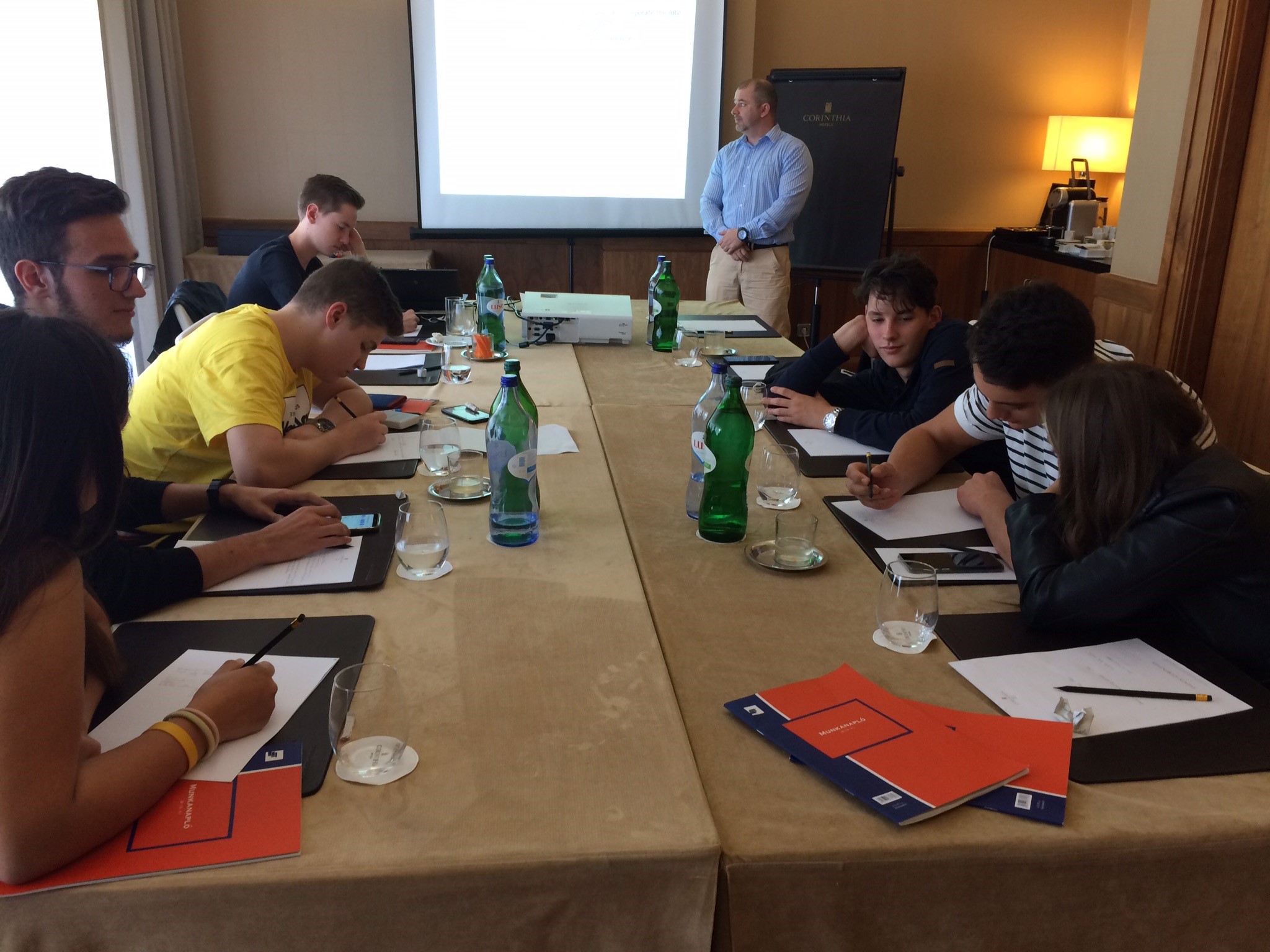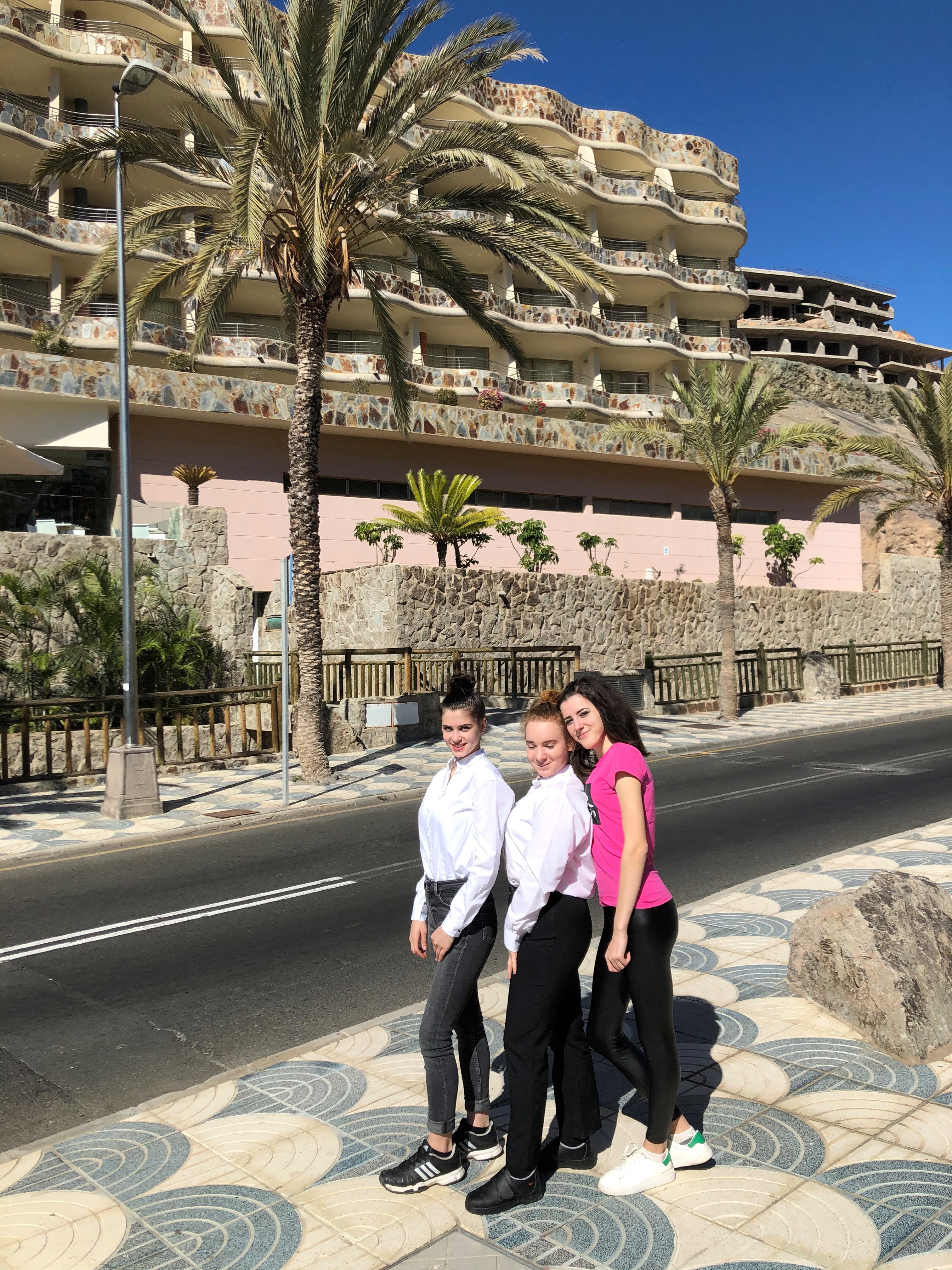
The hospitality sector is a sector with several environmental impacts, and mitigation is a shared responsibility. With this in mind, the Hungarian Maltese Charity Óbuda Technical and Vocational School set the main objective of the Green Road to Hospitality2 -Sustainability in Practice project to raise awareness of sustainability and corporate social responsibility (CSR)principles. We talked to Andor Siki, project coordinator, about the project's experiences, milestones, and the afterlife.
|
Institution: Hungarian Maltese Charity Service Óbuda Technical and Vocational School (formerly: Hungarian Maltese Charity Service Óbuda High School and Vocational Secondary School) Project title: Green Road to Hospitality 2 - Sustainability in Practice Coordinator: Andor Siki Project website |
How did you come up with the idea to start an Erasmus+ application?
Since 2010, our school has been applying for vocational training projects related to the Lifelong Learning Programme. The range is vast, as we not only try to provide our students with internship opportunities abroad, but we also work on partnership projects. As a result, over 11 years, we have managed to establish a well-functioning network of partners with institutions in many EU countries, both on the training and employer side. We are constantly exploring further opportunities for cooperation, and we are interested in all innovations that can make hospitality vocational training more imaginative and marketable.
What were the main objectives of the project, and how were they defined?
Unfortunately, hospitality is an area whose operation has many environmental impacts, the reduction of which is a shared responsibility. Various forms of pollution can be detected in hospitality processes, such as during the procurement and production processes, as well as in the cleaning, washing, maintenance and waste management processes.
Consequently, the main objective of the project is to raise awareness of the principles of sustainability and CSR (Corporate Social Responsibility) for our students studying hospitality, in the framework of a foreign internship (at members of the market-leading and international luxury hotel chain), to gain new knowledge and skills and to have a better chance of starting on the domestic and international labour market in the future.
In the development of the goals, we also considered the needs of the students, based on which a detailed programme of the practice was prepared, which we approached from the point of view of the expected learning outcomes. We aimed to focus on helping our students to acquire theoretical and practical knowledge, experiences and skills other than the certificate of hospitality qualification. During the consultations with HR experts of the host institutions, we received a comprehensive picture of the three main aspects of the selection of the hotel's employees: the practical experience, foreign language knowledge and professional knowledge of the job-applicant. Therefore, the planned trainings in the host institutions also targeted these areas, focusing mainly on the transfer of practical knowledge that is limited or not possible in a school.

What do you consider to be the biggest challenge of the project?
Compared to our previous projects, the biggest challenge was to respond appropriately to the pandemic in 2020. Like others, we have never been in a situation like that before: in the past, it seemed inconceivable that our students would have to be evacuated in an emergency situation from a country that was being closed due to an epidemic. We needed all our ingenuity, experience and local contacts to deal with the problem, as we always promise to the families of students taking part in internships abroad that we would take care of their children as if they were our own. Fortunately, we could keep our promise.
What is the attractiveness of Erasmus+ projects to students and staff?
One of the most challenging tasks in vocational education and training in the 21st century is to make our students interested in the profession, and on the other hand, to try to maintain this interest, thus preventing dropping-out or early career-leaving. In this process, internships play a crucial role, since if the student has negative experiences during the job-training from the beginning, they may finish school, but they will not work in the hospitality sector later. On the other hand, job-training providers cannot be expected to deal with the students' emotions, as they are companies operating in real market conditions, where as much revenue as possible has to be generated to survive. This is where the Erasmus+ programme comes in, helping students to try themselves out in a foreign country in a foreign environment without risk. We try to make the profession attractive: we show them where and how far they can get with a hospitality degree. The key to development is constantly learning and gaining knowledge, which is often more interesting at work than in the classroom. Try the students should try themselves abroad, because when you return home, they will benefit at home from what they learned, which will benefit the country as well.
How did the emergence of the international dimension affect the institution?
As a vocational training institution in an EU country, we are constantly trying to adapt to the changing challenges of the age – as far as our opportunities allow. This includes not only the continuous development of ICT tools, but also the strengthening of the international network of contacts. We try to show our students that the profession of their choice offers not only domestic but also foreign career opportunities. At the same time, the institution also has an idea about the labour market expectations of other EU countries and the good practices in vocational training that can serve as inspirational examples. In Estonia, we had the pleasure of seeing a hotel owned by the vocational training centre, and the hotel was 80% run by the students themselves, under the supervision of the instructor mentors. Of course, we're still a long way from that, but the model definitely works.

What is the long-term impact of the project?
It is becoming increasingly apparent that the hospitality sector has to go through a paradigm shift that has fortunately already begun. This will also require professionals who envision the future of the profession on the basis of sustainability plays a huge role. Still, one thing is sure: we will need such catering professionals. We want to contribute to this by our humble means.
What are your future plans?
Students who have ever taken part in an Erasmus+ traineeship abroad would like to -participate again at any time. We'd like to continue on the road we have started. We would like to give as many students as possible the opportunity to take part in internships abroad to get acquainted with sustainable hospitality deeper. At the same time, we would like to work as a consortium partner in more KA2 projects to gain the possession of innovations that could be the subject of new KA1 projects in the future, because in our institution, we are trying to unite our cooperation: to build on the results of a previous project. We have partners for it from France, Italy, Spain, Estonia or the Czech Republic, but the further expansion of our partnership network is also a priority.
|
Project values The three-month mobility of students studying vocational hospitality training was achieved, in the framework of an internship abroad, with the members of the market-leading international luxury hotel chain. Students acquired complex theoretical and practical knowledge during the project, focusing on areas that are limited or not possible in school education. The development of professional foreign language skills was also a priority. The job-shadowing activity of the accompanying teacher is also a good practice. He was able to get an idea of the areas in which the school's professional and language training needs to be improved. |
Interview by Diána Baranyi I Tempus Public Foundation | Erasmus+ Programme Directorate
Utolsó módosítás: 2021.12.17.












